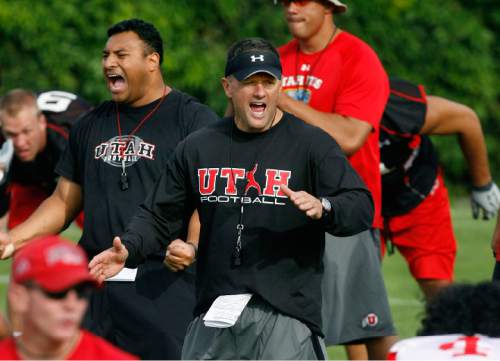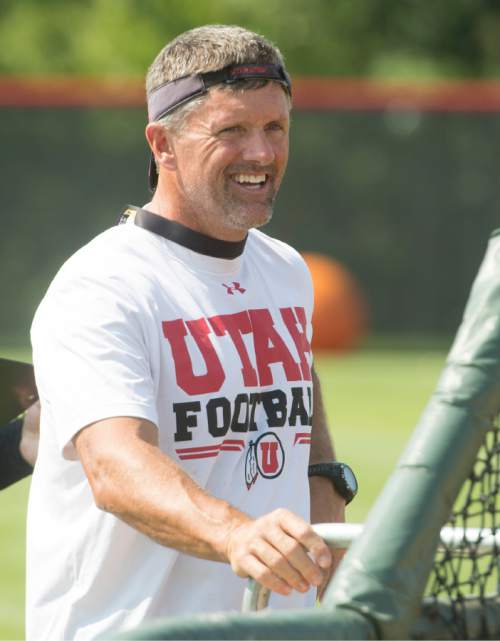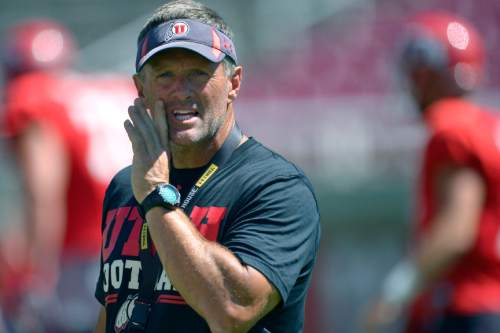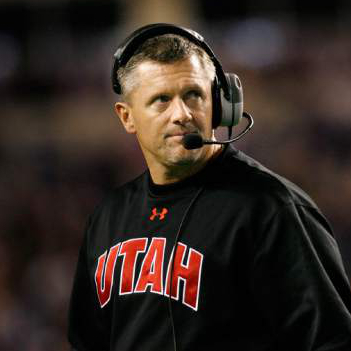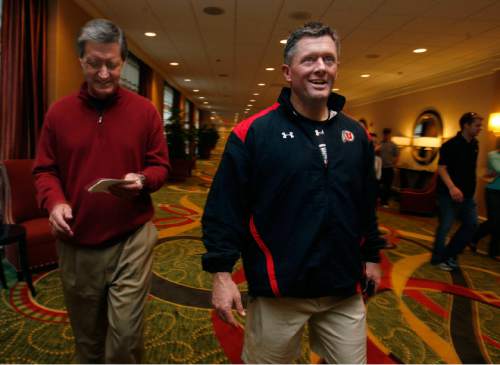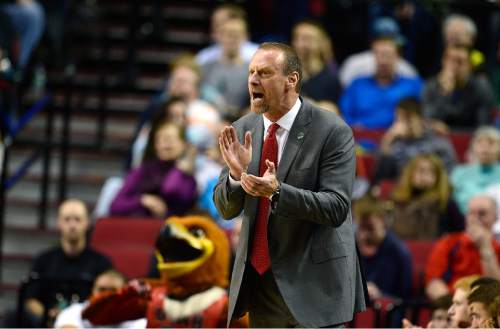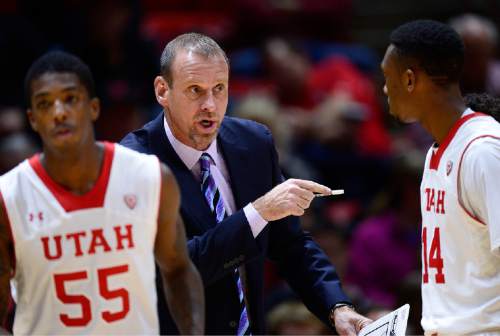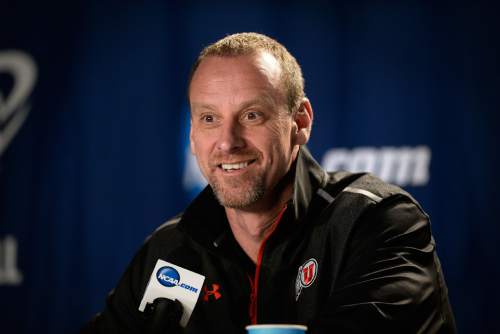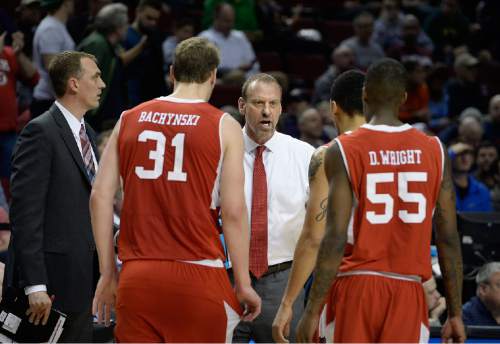This is an archived article that was published on sltrib.com in 2015, and information in the article may be outdated. It is provided only for personal research purposes and may not be reprinted.
The atmosphere of a University of Utah administrative cabinet meeting probably never would be described as giddy, to begin with, but the mood changed when Chris Hill interrupted the discussion of the Utes' invitation to the Pac-12 by talking about money.
"I've got news for you," Hill told the school's other vice presidents in 2010, detailing how his athletic department someday would be paying football and basketball coaching salaries approaching $3 million. "Faculty aren't going to be happy. I just want you to know that."
That day has arrived — or will, officially, during the 2018-19 basketball season, when Ute coach Larry Krystkowiak's salary tops $3 million, via the lengthy contract extension he signed in April.
Hill justifies the money for Krystkowiak and football coach Kyle Whittingham, accounting for a sizable chunk of a $61 million athletic budget, as a market-driven reality of the business. Let's just say the world has changed since 2009, when my editor wanted to know why I failed to make a bigger point of Whittingham's moving into the realm of $1 million annually.
Here we are, six years later, and he's scheduled to collect $11 million over the next four seasons. Utah has committed $23.7 million to Krystkowiak through 2023. And that's not counting performance bonuses, vacation allowances and a smartphone.
This is a tricky subject for me, with a father and brother who have coached college football for a combined 50 years. My default position is to defend the profession. Having witnessed the work of Krystkowiak, I share Hill's belief that if "you get a great coach, they're worth the money," as he said the other day during a media roundtable session.
Wow, though. This stuff is moving to a stage that's "clearly not sustainable," NCAA president Mark Emmert said recently. "Is there a return on the investment? At some point, some president, some athletic director, is going to say, 'No, we're not paying that coach more.' "
Some backlash is inevitable. In a recent Tribune letter to the editor, a writer reasonably wondered why Utah's coaching salaries couldn't be redistributed to nursing teachers, financing an expansion of the program amid a need for more nurses. Anecdotally, I know there's growing resentment of coaches' income, even among longtime fans of college sports.
Yet a school such as Utah benefits tremendously from Pac-12 membership, academically speaking. If you view the school's $1.766 million direct subsidy of athletics in 2015 as an investment, it is a sound one — even if the context of payments to Krystkowiak and Whittingham.
The bonding of 46,000 fans at Rice-Eccles Stadium and the visibility that Utah's athletic program gives the school make those astronomical numbers worthwhile. Nobody's dropping out of academic associations with the Pac-12 or the Big Ten because the athletic costs are too high. Instead, schools are increasing their support of the programs.
"That's when it gets to be a runaway train," Hill acknowledged.
And at some point, there's sure to be a market correction. All I can say for now is that current coaches had better appreciate a degree of wealth that once seemed unimaginable.
"You know why I coach; I coach because I love to be involved in kids' lives," said Salt Lake City native Gary Andersen, who earns $2.45 million as Oregon State's football coach. Money is "not what drives me at all. I don't think I've changed since I was making $17,000 at Ricks College, teaching Fitness for Life and then going in the weight room and coaching football."
In December 2004, having signed the first of a series of contracts that eventually would total more than $24 million, as of the 2018 season, Whittingham said he'd spent maybe $100 on himself in the past year. Pressed for details, he cited a couple of cans of tennis balls. His lifestyle probably hasn't changed all that much since then.
Personally, I'll confess to having this recurring thought: I was born way too early to really benefit from being a coach's kid. When he was named the Pac-10 Coach of the Year in 1989 at Oregon State, Dave Kragthorpe made less than 4 percent of Andersen's current salary.


